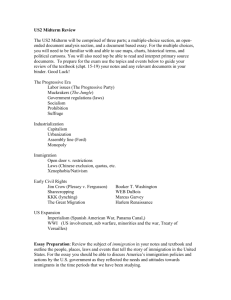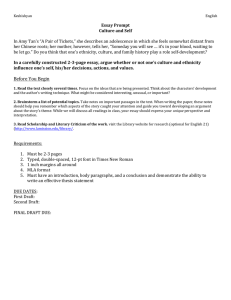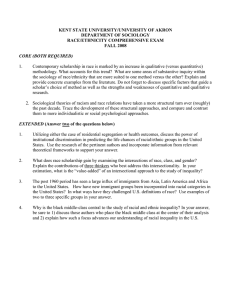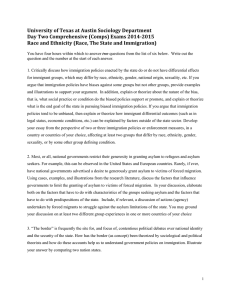University of Texas at Austin Sociology Department Race and Ethnicity
advertisement
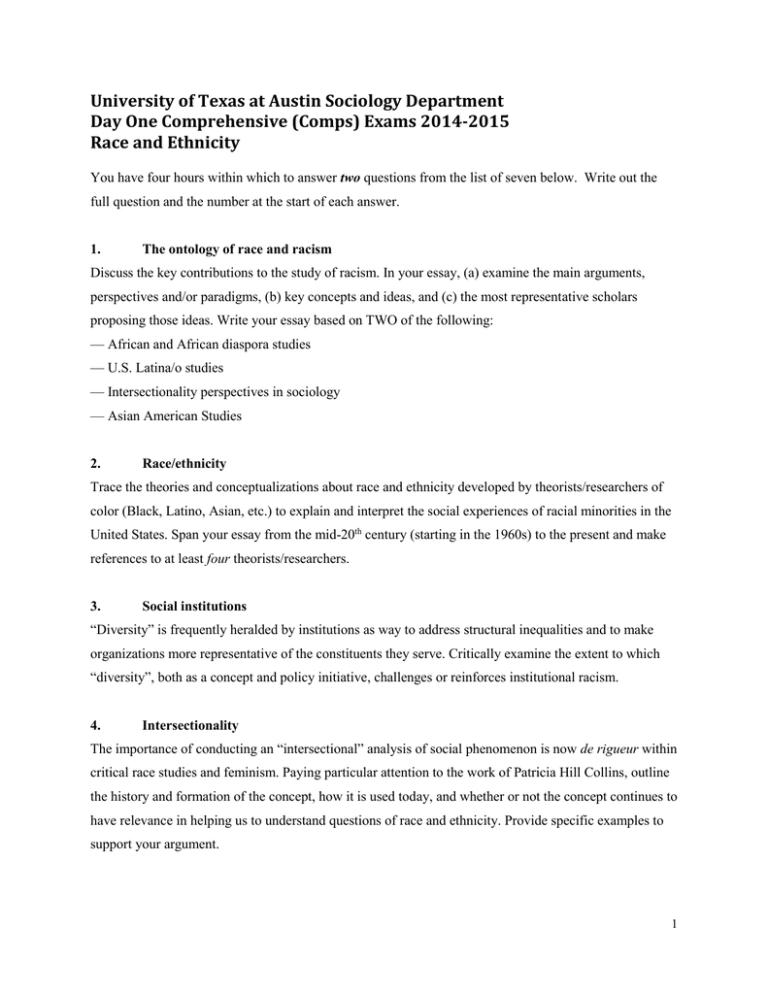
University of Texas at Austin Sociology Department Day One Comprehensive (Comps) Exams 2014-2015 Race and Ethnicity You have four hours within which to answer two questions from the list of seven below. Write out the full question and the number at the start of each answer. 1. The ontology of race and racism Discuss the key contributions to the study of racism. In your essay, (a) examine the main arguments, perspectives and/or paradigms, (b) key concepts and ideas, and (c) the most representative scholars proposing those ideas. Write your essay based on TWO of the following: — African and African diaspora studies — U.S. Latina/o studies — Intersectionality perspectives in sociology — Asian American Studies 2. Race/ethnicity Trace the theories and conceptualizations about race and ethnicity developed by theorists/researchers of color (Black, Latino, Asian, etc.) to explain and interpret the social experiences of racial minorities in the United States. Span your essay from the mid-20th century (starting in the 1960s) to the present and make references to at least four theorists/researchers. 3. Social institutions “Diversity” is frequently heralded by institutions as way to address structural inequalities and to make organizations more representative of the constituents they serve. Critically examine the extent to which “diversity”, both as a concept and policy initiative, challenges or reinforces institutional racism. 4. Intersectionality The importance of conducting an “intersectional” analysis of social phenomenon is now de rigueur within critical race studies and feminism. Paying particular attention to the work of Patricia Hill Collins, outline the history and formation of the concept, how it is used today, and whether or not the concept continues to have relevance in helping us to understand questions of race and ethnicity. Provide specific examples to support your argument. 1 5. Colonialism/modernity Post-colonial theory has impacted a range of disciplines such as English Literature, Anthropology and History. Critically evaluate the extent to which post-colonial theory has or has not impacted sociology as practiced in the United States of America. 6. Immigration and the State Describe and explain how immigration policies by the state do or do not have differential racial/ethnic effects for immigrant groups. If you argue that US immigration policies have “racial biases”, provide examples and illustrations to support your argument, and, in addition, explain or theorize about the nature of the bias, that is, what social practice or condition do the biased policies support or promote and explain or theorize, and what is the end goal of the state in pursuing biased immigration policies. If you argue that immigration policies are “racially unbiased”, then explain or theorize how immigrant differential outcomes (such as in legal status, economic conditions, etc.) can be explained by factors outside of the state sector. Develop your essay from the perspective of two or three immigration policies or enforcement measures affecting at least two racially different groups (such as Black, Latino, Asian, or white). 7. Culture and Identity The late Stuart Hall is one the major sociological thinkers on race, culture and identity. Outline Hall’s key arguments on how race should be theorized, how culture should be defined, and how identity should be understood. To what extent is Hall’s approach an advance (or not) on previous approaches to these questions within sociology. 2

